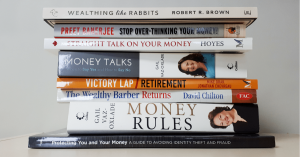The Three Demons of Profit Making
Every successful trader will tell you that trading is very much a mental game. Winning the game depends on overcoming your mental and emotional liabilities and acquiring a few important psychological assets.
The recent boom/bust in online trading has presented an excellent opportunity for Behavioral Scientists to research and analyze the influence and consequences of mental and emotional behavior on financial decisions. This area of psychology has become know as Behavioral Finance. Research by behavioral finance pioneers such as Dr. Alexander Elder, (Trading for a Living, Wiley) and Dr. Van K. Tharp, (Trade your way to Financial Freedom, McGraw Hill) in this field has a great deal to teach us about how significantly and directly mental and emotional behavior relates to a person’s success as a trader.
You trade what you believe…
One of the major differences between investing and trading is the degree to which psychology, emotions and discipline play a role. As an investor in the stock market, with a buy and hold strategy, your exposure to the three demons of profit making is greatly reduced; your main concern is finding value or growth, or both, in your stock selection process. Generally, you do some research, find a stock or two that meets your requirements, and establish a position. Then you move on to live your life, secure in your investment decision for many years to come. On the other hand, the trader takes on a position based on short term objectives and strategies, expecting results to meet his objectives and confirm his trading abilities in a very short time. This process puts the trader under a heavy burden to succeed – most of the time in a matter of days, weeks or at most just a few months. This is stress at its highest level, extreme stress. When people are under extreme stress repeatedly they must be in very good shape, both mentally and physically. The better shape you’re in, the better your performance will be.
The pressure of day to day performance evaluation makes many traders do irrational things. The trader may, for example, hold on to a stock as it goes lower and lower, or after losing money on one trade double the amount of money and shares on the next trade, only to see it go down also. The pressure to perform works on the psyche, causing most people to become less rational rather than more rational. In doing this we act on emotions and abandon any trading discipline we may have had. Once you are in this mode the three demons are in control and any chance of making real progress towards rational disciplined trading is gone. It’s just a matter of time before you lose all your money or you just stop trading, or both. Knowing the pitfalls of the trading game can help you recognize when you are out of control and need a psychological and emotional adjustment to regain the discipline needed to make money trading.
Most of us are exposed to performance standards from an early age. We are encouraged to “Do our best”, “Be as good as we can be”, and/or “Strive for the top”. We are graded throughout our school years to determine our standing as a student and a person. This mindset is one of the driving forces that motivate us throughout our adult life. Unfortunately, this mindset can get us into a lot of trouble in the trading arena. Stock trading is not about picking good stocks or being right about whether a stock will go up or down in the near future.
Stock trading is about knowing what to do with a stock, regardless of how it moves. Having the right training and tools gives us the edge to beat the three demons of profit making. Knowing your psychological strengths and weaknesses is the first step to better trading. Understanding how stress and our personal biases and what we believe can affect the decisions we make during the trading process and will lead to better trading.

Psychology, Mind Over Money
To make money trading stocks you need to look inside yourself. You need to find out who you are and the type of trader you think you are. If you’re a Type A personality, or highly competitive, your trading and decision making process may be a lot different than that of a less competitive person. If you’re an aggressive type, your tolerance for risk may be much higher than that of a less aggressive person. If you feel you have to be right most of the time, then your win-loss percentages will probably need to be greater than those of someone who can accept losing more often. Who you are, makes a big difference in how you trade and the strategies you use.
After looking at yourself, you need to look at what you believe about the stock market and how it works. Trading your own beliefs, strategies and ideas makes trading much easier than trying to trade someone else’s beliefs, strategies or ideas. Trading someone else’s strategies may go against what you believe to be true about the stock market and cause you to lose confidence in the strategy you are using. If you believe that fundamentals, trend following, or technical data moves the market, then trading a random walk strategy or price banding strategy will be hard for you to follow and make consistent profits. What you believe isn’t as important as understanding what you believe, when building a trading strategy.
We all have our biases and we often act on them without realizing that’s what we‟re doing. Trading decisions should be based on knowing your objectives, sound statistical research, thorough risk analysis and a good understanding of the probability of success. This all takes training. You can use the trial and error method or take some time (and money) and find some other source for your education. LRT’s feelings about it are: “You‟ll pay one way or the other, so invest in your training and increase your market knowledge”. Our psyche makes us vulnerable in many ways, but our understanding of what we think about trading and doing something about it can save us much grief, frustration and money. To defeat the psychology demon, you must recognize him.
Emotions, The Things Gray Hairs are Made Of
Stock trading becomes emotional as soon as we decide to be a trader. When taking on the label of “trader‟, we must ready ourselves emotionally to defend what we are about to do, and need to be prepared to justify doing it, to our family and friends. When we are trading we make it very personal. It‟s us against the market, and to a certain degree, that is true. However, we also do something that puts us in jeopardy. We make an emotional connection to our position. After all, once we own something we feel it’s ours! – not a good idea when you‟re trading stock. The stock takes on meaning as a personal extension of one‟s self. We look at it as “our baby”. This subconscious attachment evokes even more emotion as the stock moves higher. As we become prouder of our baby‟s accomplishment, we move even closer to it emotionally. We lose sight of our purpose. Greed, pride and a sense of possession weaken our judgment and cloud our decision making process. Because of this emotional attachment, we don’t want to sell and reap the profit. This stock is giving us an emotional high. As a result, we hold on too long. When it starts to go down, hope takes over. We know our baby can do better and we hang on even longer. At that point we are lost. We will likely ride the stock down to a major loss and experience the full gamut of emotions, from hope, anger, fear and frustration, to a sense of loss after we actually sell it. That is, of course, if we can bring ourselves to sell it at all.
This is just one of the many cycles that the emotion demon can put us through. It‟s human nature to take profits too early and postpone taking losses, due to an emotional attachment. When traders are under pressure they do irrational things. To be a successful trader we need to develop the basic mathematical concepts involved in trading. It is absolutely essential that we have a good understanding of probability and statistics. Overlooking this basic requirement is a fatal flaw in many fledgling traders. One‟s personality traits are a key factor in controlling emotional tendencies that directly affect trading decisions. Having an understanding of one‟s emotional weaknesses can help change the way one reacts to price and market volatility. Emotions have no part in the trading process. We need to learn to trade for the sake of trading. We need to look at every trade as an opportunity to develop skill and ability, regardless of whether it makes money or not. It’s not about picking winners or being right. It’s all about making money. If you have trouble with that distinction, you will have trouble making money. To defeat the emotion demon, you must be machine-like and unemotional. You must stick to your overall plan and exit strategy. This requires control of your emotions throughout the trading process. It’s all about discipline, discipline and more discipline.
Discipline, It Hurts so Good
Disciplined trading is something that all traders need to develop and learn to some extent or another. Few, if any, people can start trading and have all the necessary self-control and discipline needed to continually trade successfully. Most people, however, are unaware of the degree of discipline required to be a profit making trader year after year. Trading discipline is usually directly proportional to the amount of trust and understanding a trader has in the strategy he or she is using. When a trader’s methodology is at odds with his or her personality or market beliefs, doubt, uncertainty and skepticism arise. Once this takes place, it is very difficult to maintain control. Subconsciously, most traders doubt the strategy they use will continue to perform for extended periods of time. So, at the first perceived signs of a breakdown they abandon their plan and start making adjustments. The time to adjust your trading process is during backtesting. You must know your cognitive strengths and your risk tolerance. Based on this knowledge, you need to develop a strategy in which you have complete trust and a full understanding of its profit making ability and maximum drawdowns.
Understanding expectancy and training in developing profit-making strategies, and practice in using them, along with a comprehensive set of rules for each of your strategies, will give you the edge you need to maintain your control and discipline throughout the trading process. When you design your strategy to fit you, trust and understanding are built-in. Thus, the trading process comes naturally, and you will not find discipline to be a major issue.
If you are doing any of the following things, you need to work on your trading discipline:
Taking small profits (losses are larger than your profits)
Holding on to your losers
Changing your trading plan (rules, stops, etc.) as you trade
Letting winners turn to losers
Setting a different set of personal expectations
A disciplined trader knows the expectancy and understands the probability of each and every strategy employed. He or she must know in advance the expected winning trades for each strategy used. Using reliable statistical sampling techniques and meaningful studies, each strategy should be tested to establish the profit-to-loss ratio and expectancy, before it is put into use. The discipline demon is illusive and has many lives. Just when you think you have defeated it, it is back taking your profits. Thus, a trader must be ever vigilant about following his or her predetermined strategy.



